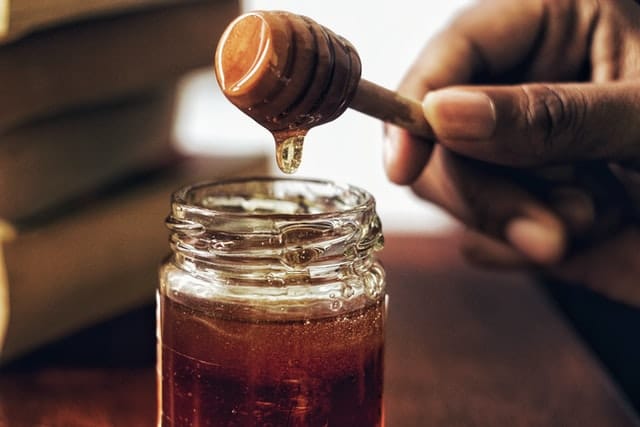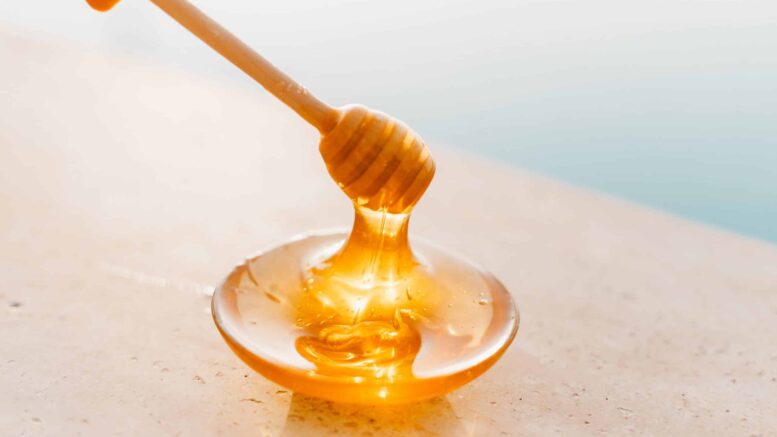Is honey good for diabetics? Overview
What is diabetes?
Diabetes is one of the world’s fastest-growing chronic diseases. According to 2018 CDC statistics among the US population, 34.2 million people of all ages—meaning 10.5% of the US population—had diabetes.
It’s believed by many that absolute restriction of sweets is mandatory for people with diabetes, although this is not the case – in fact when the diabetes is well-controlled by regular sugar control and moderation of food portions – meal choices can be pretty diverse for diabetics.
Honey
Honey is a sweet viscous substance obtained during the processing of nectar by bees. It is a natural sweetener famous for its healing properties and rich taste.
Many people are interested in whether it is safe to eat honey with diabetes mellitus.
After all, it’s sweet food that can potentially cause blood sugar spikes which in turn negatively affects the overall state of health for those with diabetes.
You might be surprised to find out that, in reasonable doses, honey is safe and can even provide some benefits to our health, unlike regular refined sugar.
Besides its rich content of carbohydrates, honey is loaded with proteins, enzymes, vitamins, minerals, antioxidants, and so on. For these reasons, honey is considered to be a healthy organic sweetener option.
Reasons why honey is considered to be a safer substituent for sugar:
First of all, let’s look at the nutrition and energetic value of honey.
100 grams of Honey includes:
- Water- 17.1g
- Energy304kcal
- Protein- 0.3g
- Total lipid (fat)- 0g
- Carbohydrate – 82.4g
- Fiber, total dietary – 0.2g
- Sugars – 82.1g
- Glucose (dextrose) – 35.8g
- Fructose – 40.9g
- Galactose. – 3.1g
To put it briefly, honey is made up mostly of water and sugars, of which 60% is in fructose form and 40% is glucose.
Raw honey also has beneficial nutrients like Riboflavin, folate, niacin, pantothenic acid, Vitamin C and E, Calcium magnesium, etc. These vitamins and minerals are lost in table sugar due to processing.
Is honey good for diabetes?
It’s hard to answer this question with yes or no. It will be more correct to put it this way:
Honey can be a better sweetener option for diabetes than regular refined table sugar.
Why is that so? Let’s find out
Honey has a lower Glycemic index than refined sugars
It’s simple science, the higher sugar content a product has, the higher will be the blood sugar spike after consuming it. Honey is mostly composed of sugar and can raise blood sugar quickly, but not as fast as table sugar.
GI – which is a score given to food according to how it affects blood sugar levels – the score for honey is approximately 56, thanks to its rich content of fructose, which is considered to be a healthier sweetener option than glucose.
On the contrary, GI for refined sugar is slightly higher – 60, making it a less favorable product for diabetics.
This is explained by the fact that refined sugar contains a 50/50 split between fructose and glucose, while honey is 60% fructose and 40% glucose.
On the other hand, since fructose is metabolized by the liver, you should always be cautious with high-fructose products to avoid liver damage.
Honey is rich in Antioxidants

Is honey good for diabetics – Honey is rich in Antioxidants
Where honey wins over sugar is in its rich antioxidant and vitamin content. Antioxidants protect our cells against oxidative stress caused by free radicals.
Raw honey has a lot of antioxidants. The thicker and darker honey is, the more antioxidants it has – anti-inflammatory properties of honey can potentially reduce diabetic complication rates like heart disease, stroke, high blood pressure, and kidney and eye diseases.
Vitamins
Refined sugar is processed, meaning it is stripped of all the good stuff like vitamins, minerals, fiber, and antioxidants.
On the contrary, honey is naturally processed by bees, leaving all the healthy nutrients in the product. B group vitamins, Vitamin C and E, Chromium, are all contained in raw honey.
Honey has a good impact on Bodyweight
For people with diabetes or prediabetes, it’s extremely important to maintain body weight within normal limits to avoid diabetic complications.
Even though honey has more calories (22) per teaspoon compared to refined sugar (16), honey is still a better option for weight loss, since it’s a lot sweeter and people tend to consume smaller amounts than table sugar – So you consume a lot fewer calories by replacing sugar with honey.
There was a study conducted with over 50 type 2 diabetics who were classified into two groups: one group consumed 50 g/day of natural raw honey for 8 weeks, and the control group didn’t consume any honey.
Weight measurements and blood tests were taken before and 8 weeks after the study.
According to the results of this study, honey consumption has a good impact on the body weight and blood lipids of diabetic patients.
Although important to mention, an increase in the hemoglobin A(1C) levels was noted in the honey group, so watchful consumption and portion control of this food by diabetic patients is advised.
Can Honey prevent diabetes?
If not consumed in moderation honey can become a trigger for blood sugar spikes and hence increase the risk of diabetic complications, despite that fact – surprisingly researchers are demonstrating the preventive impact of honey for type 1 diabetes.
There was a study conducted consisting of over 80 people, which observed the protective effects of honey on pancreatic beta cells.
In comparison to table sugar, consumption of honey caused a significant increase in C-peptide and a decrease in fasting blood glucose levels in both healthy people and those with type 1 diabetes.
C-peptide is a substance made in the pancreas, along with insulin. This is one of the diagnostic tests for type 1 diabetes, to check if insulin is secreted in normal amounts.
According to this small study, honey has potentially beneficial effects on diseased beta-pancreatic cells, who knows, it might even be considered in future trials for type 1 diabetes management.
Even though some studies showed promising results, after all, research on this topic have been conflicting, and more studies with larger, long-term trials are needed.
The use of honey in diabetics still has challenges and needs larger multi-center clinical controlled studies to reach better conclusions.
Recommendations
- Responses to honey can be different for everyone, so daily dosages should be individually chosen according to monitored blood sugar levels.
- To monitor response to honey, blood sugar levels could be checked before consumption and again two hours later.
- If your diabetes is not well managed or you’re trying to lower your average blood glucose levels, it might be best to limit honey and other added sugars in your diet
- When selecting commercial honey for diabetics, pay attention to the package to make sure it is pure and does not have additives like glucose, starch, cane sugar, and even malt, which is better to avoid in a diabetic diet.
References:
https://www.cdc.gov/diabetes/data/
Meo S. A., Ansari M. J., Sattar K., Ullah C. H., Hajjar W., Alasiri S. Honey and diabetes mellitus: obstacles and challenges – road to be repaired. Saudi Journal of Biological Sciences. 2017;24:1038–1042. DOI: 10.1016/j.sjbs.2016.12.020.
Read H., Dashtabi A., Khansari M., et al. The effect of honey consumption compared with sucrose on blood pressure and fasting blood glucose in healthy young subjects. Global Journal of Medicine Research and Studies. 2014;1(4):117–121.
https://pubmed.ncbi.nlm.nih.gov/
https://www.webmd.com/diabetes/
https://www.ncbi.nlm.nih.gov/pmc/articles/
https://www.ncbi.nlm.nih.gov/pmc/articles/
See Also
Is Popcorn Good for Diabetes

As a nutritionist, I research, find and experiment with recipes, natural diets and meal plans for weight loss, bodybuilding, and detoxing.
